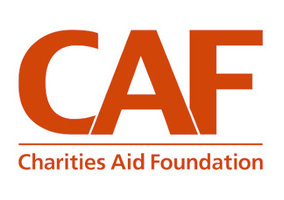The UK is no longer among the most generous 20 countries in the world, according to the Charities Aid Foundation’s World Giving Index 2024.
CAF’s index now places the UK at number 22, its joint lowest ranking, having fallen to the same level it was in 2020 when charitable activity was limited by the Covid-19 pandemic.
The index, based on data from the Gallup World Poll, asks whether people have helped a stranger, given money or volunteered for a good cause over the past month and calculates an average score for each of the 142 countries.
The UK’s ranking peaked in 2014 when it was considered the sixth most generous country in the world with an overall score of 57%, but this fell to 49% this year.
According to the latest report, 67% of people in the UK now donate money (compared to 75% in 2014), 55% help strangers (declining from 63% in 2014) and 26% volunteer their time (compared to 32% in 2014).
These figures compare to 71% who said they donated in last year’s report, 51% who helped strangers and 26% who volunteered.
In a new separate poll of over 1,000 Brits, 25% said the UK has become more generous over the last 100 years, while 41% said the country’s generosity has declined or was never high in the first place.
Other countries move up rankings
Indonesia topped the list for the seventh year running, followed by Kenya and Singapore.
Greece had the largest year-on-year increase in the world for helping a stranger and Singapore recorded the biggest global increase for volunteering.
Meanwhile, Morocco saw the world’s largest year-on-year increase in donating money.
China has seen the largest overall improvement over the past decade, moving up the rankings by 49 places with its index score is three times higher than it was 10 years ago.
The country has recorded a 388% increase in the proportion of people who donated money and a 441% increase in volunteering time.
Oceania was the top performing region and records among the highest life-satisfaction ratings in the world.
Call for philanthropy and charitable giving strategy
Neil Heslop, chief executive of CAF, said: “The long-term decline in the UK’s overall generosity shows we seem to have increasingly fallen out of the habit of giving - both our time and our money. Building a giving society is crucial to connect us to one another in communities and strengthen our social fabric.
“While we can still be a generous country even when times are so tough, more needs to be done to prevent this downward trend from continuing.
“We can learn from other countries that have taken proactive steps to harness charitable giving such as Singapore and Australia.
“That is why we are calling on the government to lead a national strategy for philanthropy and charitable giving that renews our British culture of giving.”
The Chartered Institute of Fundraising (CIoF) supported CAF’s call for the government to lead a national strategy for philanthropy and charitable giving.
“The past year has been tough for charities and the public alike,” said Claire Stanley, director of policy and communications.
“Although donations hit a record £13.9bn in 2023, as indicated in the recent CAF UK Giving Report, this increase was due to donors giving larger amounts of money, rather than more individuals giving to charity, and it really highlights that the financial pressures people are facing are a real barrier to giving. The cost-of-living crisis has hit charities hard – and it’s hit the people who support them.
“On the flip side of this, we’re also seeing a rise in demand for services – with more people needing charitable organisations; highlighting why charitable giving has never been more important, not only to respond to short-term needs, but to enable longer-term funding so the sector is ready to adapt to future challenges.
“Charities can take several steps to boost regular giving, depending on their long- and short-term goals.
“Many of our members have pivoted to lottery products or are exploring value-exchange products that give donors a chance to win a prize or receive something in return. Others, particularly those that are community based, or part of a tight-knit community, have concentrated on showcasing the relevance of their causes to donors, and the tangible impact of their support.
“At the heart of it is understanding what will resonate best with donors and being able to adapt to their needs.
“Achieving this will require a long-term sector-wide shift towards insight-driven fundraising, where any fundraiser has the skills and tools to analyse donor data and make informed decisions. We support CAF’s call for the government to lead a national strategy for philanthropy and charitable giving.”
Related Articles











